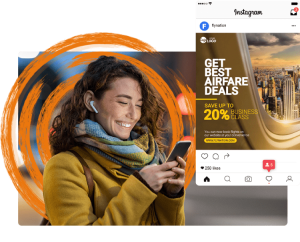You can get your brand right into the palm of your customer’s hand by sharing content and keeping up-to-date social profiles. Learn how to use social media for SEO and boost the visibility of your website.
Every digital marketing strategy should include a social media plan. Social media marketing is a highly effective way to engage with consumers in the most intimate way. You can get your brand right into the palm of your customer’s hand by sharing content and keeping up-to-date social profiles.
If we put aside the benefits of social media in a traditional sense (engagement/brand awareness), there is another reason you should always share your content on multiple platforms – SEO. Learn how to use social media for SEO and boost the visibility of your website.
Tips on How to Use Social Media for SEO
1. Invest in SEO services
Our first (and most important) tip is to make sure your website has been optimised for SEO. There’s no point spending hours of time and effort on social media strategies if the content you’ve shared hasn’t been optimised. Check out these tips on how to optimise your website.
At Digital Animals, we’re an experienced SEO agency with a proven record in boosting organic website traffic. If you’re interested in boosting your search engine visibility, contact us today. We have a dedicated team of professionals who will manage your website.
2. Share your content
Every time you add a new piece of content to your website, (whether it’s a blog post, news article, new service, or product) you should share it on each of your social media accounts.
Running a #smallbusiness? Make sure you’re using the best #ecommerce #webhosting platform. Find out more in our blog https://t.co/Rfs8Jdccbu pic.twitter.com/6acCGDJBHh
— Digital Animals (@Realize_Online) October 3, 2017
Links to your content from social media can increase the speed at which Google indexes your content. That is, if you share a post right away, it can show up in search engines much faster than when it isn’t shared at all.
Sharing content has the obvious benefit of bringing traffic into your website. When a page has a lot of traffic, Google can see it. The traffic shows that the content is valuable, and helps to push that particular page further to the top of search engine results.
Ongoing interaction with a particular post on social media can help to extend the ranking ability of the targeted web page.
3. Use SEO Keywords in your posts
If you want to know how to use social media for SEO, you need to be aware of which keywords you are targeting with your content. Your post or page should have a specific focus, with an aim to appear on the first page of Google for that keyword.
If you know which keywords your content is targeting, include them in the text you post on social media. This may help your social posts appear in search results, as well as boost any existing SEO optimisation work that has been completed on your web page.
In our blog, we wanted to rank for the key phrase: how to make people stay on your website. As you can see, when we shared the post on social media, we included the exact phrase. If you’re unsure which keywords to target, consult with your SEO service company.
4. Backlinks
Social media can affect search engine rankings in an indirect way. When you have a popular post on social media, people are more likely to share it, and potentially include a link to your blog on their website. When another website links to your web page, it is called a backlink.
When Google ranks different web pages for their search results, they take into account how many backlinks you have for your website. If you can get someone to link back to your web page, Google will see that your page has more authority and it will move up the ranks.
Strategic SEO Company
Now that you have some insight on how to use social media for SEO, why not find out a little bit more about how you can optimise your website? Social media is just the tip of the iceberg when it comes to search engine optimisation.
At Digital Animals, we have a dedicated in-house team of SEO experts. Call us today for a chat about how we can help you.
Author: Anna Clark – Copywriter & Digital Marketing Assistant, Digital Animals







